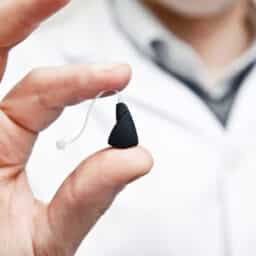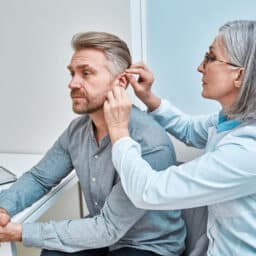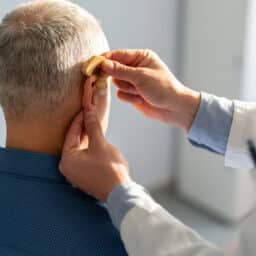Household Bugs Are More than Just a Pest—Some May Cause Hearing Loss

The two most common causes of hearing loss are advanced age and noise exposure. But did you know that there are certain household bugs that can contribute, too? In this post, we review which bugs can and how you can protect your hearing. Bed Bugs The common bed bug, Cimex lectularius, is a pest that…
Managing Hearing Aids and Glasses: A Guide for Clear Sound and Vision

Approximately 10% of people in the United States have hearing loss. If you’re one of the many people treating your hearing loss with hearing aids, you already know how these remarkable assistive devices can open you up to a world of clearer sound. But what happens when glasses join the picture? Balancing these two essential…
How Hearing Aids Can Help You Rediscover Your Favorite Activities
Hearing aids are a gateway to improving your social life, rediscovering hobbies and enhancing your overall quality of life. By making sounds clearer and louder, these devices help you reconnect with the world around you, allowing you to participate in activities that may have become difficult or unenjoyable due to hearing loss. Many people may…
Custom Earplugs: How Can They Protect Your Hearing?

Noise-induced hearing loss (NIHL) affects approximately 5% of the world’s population. Understanding how noise impacts your hearing and taking proactive steps to protect it is vital, especially for those who frequently find themselves in loud environments. How Does Noise Travel? Although it happens in an instant, the journey of sound through your ears is more…
The Evolution of Hearing Aids: How Advances Can Improve Your Hearing Experience

Medical technology is an ever-advancing industry, and hearing aids are one area where you can see, or hear, the improvements. Modern hearing aids are the result of frequent improvement, transforming them from the cumbersome ear trumpets of the past to the sleek, sophisticated devices available today. Let’s delve into some of the most recent innovations…
What Is the Connection Between Arthritis and Hearing Loss?

Arthritis, a condition characterized by inflammation of joints, can have implications beyond joint pain and stiffness. Some studies have shown that certain forms of arthritis and the medications used to treat them have the potential to cause hearing loss. Arthritis Medications and Hearing One of the connections between arthritis and hearing loss lies in the…
Bluetooth® and Hearing Aids: What To Know

Bluetooth technology, known for its seamless connection of smart devices, is commonly used to pair phones with wireless headphones or car stereo systems. However, this versatile technology also significantly benefits hearing aids, enhancing their functionality and user experience. Let’s delve into how Bluetooth can transform the hearing aid experience for approximately 10% of people living…
Active Listening Strategies for Those With Hearing Loss

Active listening is a powerful technique for communication, especially for individuals with hearing loss. It serves as a valuable tool for bridging communication gaps that may arise from missed auditory cues. With approximately 20% of the global population having some degree of hearing loss, utilizing active listening becomes relevant and essential. Active Listening Techniques Consider…
Tips For Hiking with Hearing Aids

If you use hearing aids or are among the 28 million Americans who could benefit from them, you might question whether it’s safe to engage in certain activities while wearing them. Many assume that activities like hiking might be off-limits due to the care that hearing aids require. However, wearing hearing aids while hiking can…
Single-Sided Hearing Loss: Signs and Treatment Options

Single-sided hearing loss, also referred to as unilateral hearing loss (UHL) or single-sided deafness in severe cases, is a condition where hearing loss is limited to one ear. In the United States, approximately 60,000 people grapple with UHL. Recognizing the signs of UHL and seeking timely intervention can significantly improve your ability to cope with…